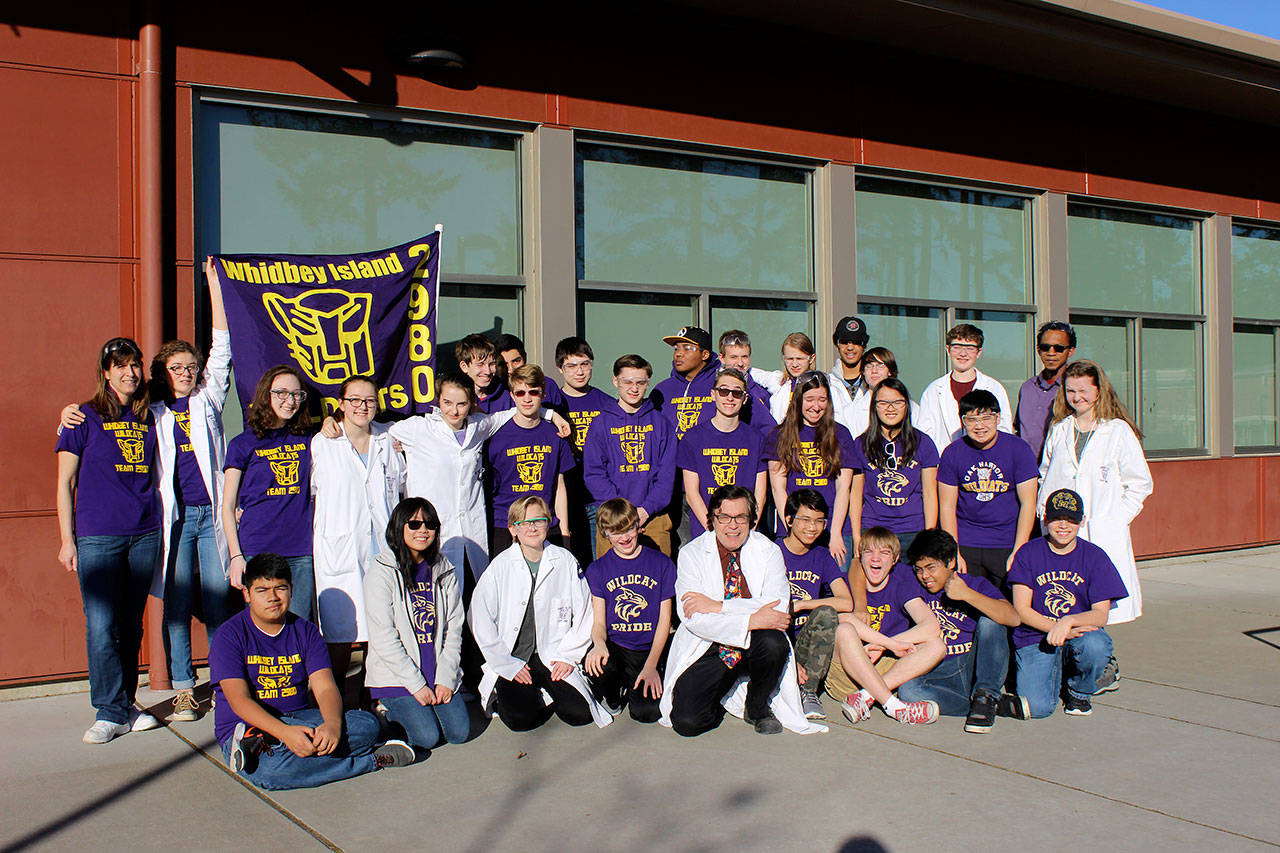Four outstanding robotics students from Oak Harbor High School are setting out to fix a large problem in a small way.
The Whidbey Island Robotics Team is holding a micro-home design contest to address homelessness as its first competition outside of the team. The Wildcats are aiming to get entries from high school students across the Pacific Northwest.
The contest is being run primarily by the team’s “dean’s list” nominees. The dean’s list is the highest award given to members of FIRST robotics teams. FIRST, which stands for for inspiration and recognition of science and technology, is a national organization and the Oak Harbor club is part of its regional group.
Teams are allowed to nominate up to four students every year.
“They’re really the best the best of the best,” said club facilitator Che Edoga.
Taylor Johnston, Natalie Hahn, Logan Ince and Matthew Rosencrans are those students, and they are the ones spearheading the competition as well as entering their own individual designs. A panel of judges from the community will select the winner who will get $2,000.
The competition runs through the end of December, and in March the team will build two houses based on the winning design. One tiny house will go in Oak Harbor and the other will go to the community of the individual or team who won.
The robotics teams have done projects related to home construction before including Hearts and Hammers, which repairs homes for individuals unable to do so.
“This is definitely going to be a learning experience for the team,” said Rosencrans.
Edoga said the team is hoping to get help from some of the mentors who are experienced contractors and it is trying to recruit an architect. The 44-member team will have the added challenge of only having a two-week window to complete the houses between preparing for different competitions.
“Basically what we’ll probably do is have all the materials on hand and have everything staged, and then we’ll do a crazy build session and probably get them dry the first weekend,” said Edoga.
The micro-home must fit on an 8-by-5-feet trailer, not be taller than 7 feet and weigh less than 1,600 pounds. The competition rules also include guidelines to make the home a place where someone can “thrive throughout the day and night.”
The team is funding the competition with money that was originally budgeted for going to the FIRST robotics championships last year, but went unused when the team didn’t go. The students were inspired by a competition put on by a Portland-based robotics called LEAP, which stands for linking engineering and philanthropy. The Wildcats wanted to participate, but Portland was too far. When designing their own competition, the students wanted to make it possible for students to enter electronically.
“It’s just really good to be able to involve an entire region without them having to all travel,” said Hahn.
Club’s facilitator Edoga had recently attended a meeting in which attendees were brainstorming ideas to address homelessness on the island while the students were trying to decide on a competition.
“A few were working towards the idea of having a design-based competition to solve a community problem, and Edoga had been trying to get people to work on building micro-homes for a while, so we married the two ideas to try and make them both go together better,” said Ince.



